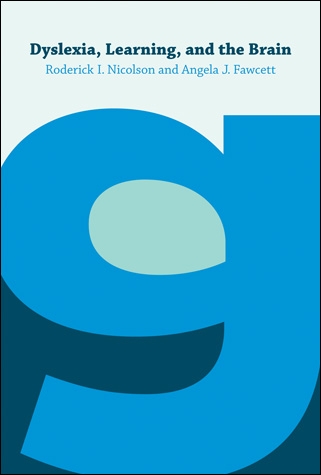The Gift of Time
in the
Learning Process
A very helpful fact is that all children need a specific and fairly predictable number of encounters with new information to routinize it in their memory. Difficult memory work often holds children back from greater and deeper learning. Initial reading skills are full of visual/sound connections that must be memorized. Math as well. Elementary math can be tiresome with all of its memory work. There is an art to juggling new learning and keeping meaningful thinking alive in your home. Especially when there are a wide variety of needs all happening at once.
Know your options. Discover effective and strategic ways to grow and deepen the learning journey. Children are wired for mastery and the confidence that it brings.
Get to know your child's learning journey and the amount of time that it takes for them to learn something. Below is a discussion of cognitive difference and time requirements.
Don't be afraid of time. Befriend it. Enjoy it. Use it. Know that it is on your side.
Dyslexia, Learning, and the Brain...

This book in 2008 was a great help to me. There was so much that I did not understand. So many different thoughts floating around out there. But here were my non-technical key take aways:
1. Dyslexia is not a quantifiable term. Rather, it describes someone with "a discrepancy between actual reading performance and what would be expected based on the child's intelligence." (pg. 1). I have used this many times to tell children that by definition they are intelligent. Their brains are doing some things very differently than other brains do them and this makes for some amazing abilities that can not be taught, and other abilities that take longer to be taught. But, either way, you cannot be dyslexic without being intelligent.
2. You can see signs of dyslexia early in children and it is something to be aware of. Dyslexic children do not hear sound well in their brain. They don't recognize rhyming words. They cannot recall names often. There are many things that are now known about phonological awareness (awareness of the different sounds within words) and early development of sound recognition. It is good to take time to see how your young child holds words and the sounds in words with rhymes, etc. This is a great book to work through with younger children as you start the school process. Also, I have often used these simple rhymes with the pre-school crowd.
3. Keep your child thinking in complex ways. The book references a study by Sally Shaywitz (1996) stating that "...a deficit in the speech/language phonological (knowledge of sound) module in the brain leads to specific problems in learning to read (and in remembering linguistic information) without otherwise affecting higher level reasoning. For Shaywitz "The phonological model crystallized (specifically clarifies) exactly what we mean by dyslexia: an encapsulated deficit (not broad through out the child's life - but specific to the area of language), often surrounded by significant strengths in reasoning, problem solving, concept formation, critical thinking and vocabulary." (pg. 3) Although there are many who do not believe that dyslexia is isolated (encapsulated) to just sound, but, rather, there are strong cognitive differences that give rise to the phonological problems (making sense of the sounds in the words as you read) associated with reading, this quote is accurate in clarifying the important strengths of dyslexic folk. I am someone who likes the term dyslexia. Not everyone does. Many books have been written about the strengths of these types of brains. What is significant in all this to me is that when teaching your child you do not let their challenges dictate the depth of their learning experience. Get important information to them at all times. Keep up with the world. Keep up with ideas and reason well together. Keep up with meaningful literature. Important philosophical thoughts. Etc. Even as they struggle with "basic" skills that are not at all basic to them.
I have often told my daughter "It would be difficult, if not impossible to teach others the amazing things that your brain does. It is very special that way. And you need to be patient with the things that it doesn't do that other brains seem to do effortlessly - because you will be able to do those things as well...with time."
Time

4. Which brings me to my last Big Picture point from this book (Although more follows). TIME. It takes time for a dyslexic to learn many things that the brain does not seem to be able to easily hold on to. REDUNDANCY in TIME. Or you can say repetition throughout time.
- § Continuous improvement of skill with practice is how we all learn. However, "...(d)yslexic children have abnormal difficulties in making skills automatic, despite extensive practice, regardless of whether the skill is cognitive (conscious intellectual activity) or motor (movements acquired through practice). ... Although (dyslexic) children appear to be behaving normally, they show unusual lapses of concentration and get tired more quickly than normal when performing a skill. ...(Life) for a child with dyslexia might be thought of like living in a foreign country, where it is possible to get by adequately, but only at the expense of continual concentration and effort." The authors refer to this as conscious compensation. " ...(D)espite their more limited automaticity (making effortless and immediate) of skill, dyslexic children are able to perform at apparently normal levels most of the time by 'consciously compensating,' that is by consciously concentrating (controlled processing) on performance that would normally by automatic." (pp. 68 - 69.) This point is significant for home schoolers. We can give time and consistency to the learning process without making it overly taxing and too difficult. Our children are not falling behind, they are moving forward in a meaningful and conscientious way through which skills are acquired and abilities achieved. And by which, TIME is our friend.
- The time required for your child to learn can be visualized by you, the parent, in a way that can make us not afraid of the slowness of the endeavor. Nicolson and Fawcett refer to the "Square Root Law." The time it takes for a dyslexic child to learn something new is about x1.5. Although this is definitely a broad stroke statement, it tells us this: that our child will need x1.5 repetitions where other children will need only x repetitions. What might this look like? If something takes an average learner 4 repetitions, it will take a dyslexic child 4 x the square root of 4 which is 4 x 2 = 8. AKA twice as long. What about a more difficult task that takes about 25 occurrences to become automatic? That would be 25 x the square root of 25, which is 25 x 5 = 125. AKA 5 times longer. A 100 initial experiences for the dyslexic child is 100 x the square root of 100 which equals 100 x 10 = 1,000 repetitions. AKA 10 times longer. This gives us a rough guide line. The more difficult the task is initially, the significantly longer will the journey of memorizing and acquired ability be for the Dyslexic. But the good news to me is that it is always do-able. And, thus, my rather crazy approach to multiplication tables. Something you will use for the rest of your life is worthy of the tremendous amount of time required for it to become automatic in re-call. Some learning journeys are definitely worth the time required for mastery.
- Be careful and thoughtful and well-informed as you teach your Dyslexic child. Dyslexics "have even more trouble unlearning a learned skill than normal - an issue of great relevance to reading instruction method." ( pg. 84). The point here is that when wrong approaches are learnt they are even more challenging for the dyslexic child to correct. This, again, has some consequences regarding time. These children do not need to learn everything at once, but they do need to be driving their learning in the right direction, as time is taken to effectively layer and build up the necessary skills for the reading process. Time is your friend but it needs to be time well spent.
Technical Take Aways...
For those who might be interested...

